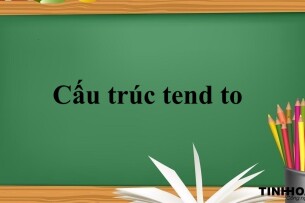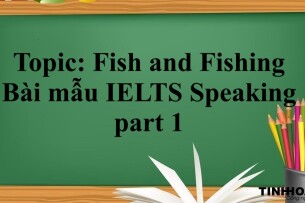|
Situation - Tết is the Vietnamese New Year, a significant and vibrant festival celebrated in Vietnam. It takes place in late January or early February, following the lunar calendar, and lasts for several days. Vietnamese people worldwide participate in this celebration.
Task - During Tết, streets and houses are adorned with colorful decorations, flowers, and traditional symbols. Cleaning houses thoroughly is also an important part of the preparation, symbolizing the removal of bad luck from the previous year.
Action - Families prepare a variety of traditional dishes like bánh chưng, nem, and xôi. These dishes hold symbolic meanings and are believed to bring good luck and blessings for the upcoming year. Additionally, people make visits to their relatives' and friends' homes, exchange warm wishes, and give lucky money in red envelopes to children and unmarried adults.
Result - Personally, I absolutely love Tết! It's my favorite time of the year. The festival creates a joyful and festive atmosphere, and I enjoy the traditional food and the reunions with my loved ones. Tết is a time of happiness, gratitude, and hope for the future. It also fosters cultural pride and unity among Vietnamese people.
|
Bài mẫu
So, let me tell you about an amazing festival in my country called Tết. Tết is the Vietnamese New Year, and it's one of the most significant and vibrant celebrations in Vietnam.
Tết usually takes place in late January or early February, following the lunar calendar. The festival lasts for several days, and it's celebrated by Vietnamese people all around the world. Families gather together, and the atmosphere is filled with joy and excitement.
During Tết, streets and houses are beautifully decorated with colorful flowers, ornaments, and traditional symbols. One of the most iconic decorations is the peach blossom tree, which symbolizes growth and prosperity. People also clean their houses thoroughly to get rid of bad luck from the previous year.
One of the highlights of Tết is the traditional food. Families prepare a wide variety of delicious dishes, including sticky rice cake, spring rolls, and sticky rice. These dishes have symbolic meanings and are believed to bring good luck and blessings for the upcoming year.
Another important aspect of Tết is visiting relatives and friends. People make visits to their loved ones' homes, exchange warm wishes, and give lucky money in red envelopes to children and unmarried adults. It's a time for reuniting with family, honoring ancestors, and strengthening bonds within the community.
As for me, I absolutely love Tết! It's my favorite time of the year. I enjoy the festive atmosphere, the delicious food, and the joyful reunions with my family and friends. It's a time of happiness, gratitude, and hope for the future. The traditions and customs associated with Tết bring a sense of cultural pride and unity among Vietnamese people.IELTS Speaking Part 3 Sample - Festivals / Traditions
Từ vựng cần lưu ý
- Take place (Diễn ra): Xảy ra, tổ chức.
- The lunar calendar (Âm lịch): Lịch dương.
- Be beautifully decorated (Được trang trí đẹp mắt): Được trang trí tinh tế, đẹp mắt.
- Ornaments (Trang trí, đồ trang sức): Đồ trang trí.
- Traditional symbols (Biểu tượng truyền thống): Các biểu tượng mang tính truyền thống.
- The peach blossom tree (Cây hoa đào): Cây hoa đào.
- Prosperity (Thịnh vượng, phồn vinh): Sự thịnh vượng, giàu có.
- Get rid of bad luck (Loại bỏ điều xui xẻo): Loại bỏ những điều không may, xui xẻo.
- A wide variety of (Một loạt các, nhiều loại): Nhiều sự đa dạng, đủ loại.
- Symbolic meanings (Ý nghĩa biểu tượng): Những ý nghĩa mang tính biểu tượng.
- Blessings (Lời chúc phúc): Những lời chúc phúc.
- Red envelopes (Phong bì đỏ): Phong bì màu đỏ.
- Reuniting with family (Đoàn tụ gia đình): Tụ tập, đoàn tụ với gia đình.
- Honoring ancestors (Tưởng nhớ tổ tiên): Tôn kính tổ tiên.
- Strengthening bonds (Củng cố tình đoàn kết): Củng cố mối quan hệ, tình đoàn kết.
- The festive atmosphere (Bầu không khí vui tươi, phấn khởi): Bầu không khí náo nhiệt, vui vẻ.
- The joyful reunions (Cuộc đoàn tụ vui vẻ): Những cuộc đoàn tụ vui vẻ.
- Gratitude (Sự biết ơn): Sự biết ơn, lòng biết ơn.
- A sense of cultural pride and unity (Sự tự hào văn hóa và đoàn kết): Sự tự hào văn hóa và sự đoàn kết.
IELTS Speaking Part 3 Sample - Festivals / Traditions
1. Do you think that festivals and traditions have an important role in society? Why or why not?
Absolutely! Festivals and traditions bring that sense of community, celebration, and connection to our roots. They're like those glue that holds society together, you know? They provide an opportunity for people to come together, share cultural experiences, and pass down values and customs to future generations. Plus, let's not forget the sheer joy and excitement they bring. Who doesn't love a good festival?
- A sense of community (Tình cộng đồng): Một cảm giác thuộc về cộng đồng.
Ví dụ: Festivals and traditions foster a sense of community, bringing people together to celebrate and strengthen their bonds.
- Connection to our roots (Kết nối với nguồn gốc của chúng ta): Sự liên kết với nguồn gốc, tổ tiên của chúng ta.
Ví dụ: Festivals and traditions provide a connection to our roots, allowing us to honor our heritage and ancestral customs.
- Pass down values and customs to future generations (Truyền đạt giá trị và phong tục cho thế hệ tương lai): Lưu truyền giá trị và phong tục cho thế hệ sau.
Ví dụ: Festivals and traditions serve as a platform to pass down values and customs to future generations, ensuring the preservation of cultural heritage.
2. What is a traditional food or drink that people typically enjoy during festivals in your country?
During festivals, we Vietnamese folks love to indulge in some mouthwatering traditional treats. One popular food is "bánh chưng" - it's like a square sticky rice cake wrapped in banana leaves, filled with savory ingredients like mung beans and pork. And let's not forget our famous "bánh tét," a cylindrical rice cake with different fillings, oh so tasty!
- Mouthwatering traditional treats (Những món ăn truyền thống hấp dẫn): Những món ngon truyền thống khiến bạn khát nước dãi.
Ví dụ: During festivals, people indulge in mouthwatering traditional treats like "mooncakes" or "tangyuan," which are delicious and symbolize good luck.
- Savory ingredients (Những thành phần mặn ngon): Các thành phần mặn và thơm ngon.
Ví dụ: Traditional dishes are made with savory ingredients such as herbs, spices, and marinated meats, adding depth of flavor to the culinary experience.
- Fillings (Nhân): Những nguyên liệu hoặc nhân được sử dụng để làm món ăn.
Ví dụ: Dumplings are often made with various fillings, such as pork, shrimp, or vegetables, offering a delightful burst of flavors.
3. How have festivals and traditions changed over the years in your country? Do you think they will continue to evolve in the future?
Festivals and traditions in Vietnam have seen some changes over the years. With the influences of modernization and globalization, we've seen some fusion and adaptation in the way we celebrate. But fear not, traditions are like the roots of a tree, they may grow and adapt, but they remain strong. I believe our festivals will continue to evolve, embracing new elements while keeping the essence of our rich heritage.
- Fusion (Pha trộn): Sự kết hợp, sự pha trộn.
Ví dụ: In recent years, we've seen a fusion of traditional and modern elements in festival celebrations, resulting in unique and exciting experiences.
- Embracing new elements (Chấp nhận các yếu tố mới): Sự tiếp nhận và chấp nhận các yếu tố mới.
Ví dụ: Festivals and traditions have evolved by embracing new elements, incorporating contemporary elements while preserving their core traditions.
- Keeping the essence of our rich heritage (Giữ gìn bản chất của di sản phong phú của chúng ta): Giữ gìn bản chất và di sản văn hóa phong phú của chúng ta.
Ví dụ: Despite changes, festivals and traditions in Vietnam have managed to keep the essence of our rich heritage, ensuring that the cultural significance is preserved.
4. Do you think that festivals and traditions are becoming less important in modern society? Why or why not?
Ah, the modern world, it's a double-edged sword. On one hand, some may argue that festivals and traditions are becoming less important as people get caught up in their busy lives and the influence of Western culture. But hey, I think it's all about finding that balance. Festivals and traditions ground us, they give us a sense of identity and a connection to our roots. So, while they may evolve, I believe they'll always hold a special place in our hearts.
- A double-edged sword (Dao hai lưỡi): Một con dao hai lưỡi.
Ví dụ: The impact of modernization on festivals and traditions can be seen as a double-edged sword, bringing both positive and negative influences.
- Get caught up in (Bị cuốn vào): Bị lôi kéo vào, mắc kẹt trong.
Ví dụ: In the fast-paced modern society, people can easily get caught up in their daily routines and overlook the importance of festivals and traditions.
- A sense of identity (Tình cảm nhận thức về bản thân): Một cảm giác nhận thức về bản thân, danh tính của mình.
Ví dụ: Festivals and traditions play a significant role in shaping a sense of identity, allowing individuals to connect with their cultural heritage and values.
Tổng kết
Tác giả hy vọng thông qua bài viết trên đây, người học đã hình dung được những câu hỏi trong phần thi Speaking Part 3 có thể gặp trong chủ đề này, cách lập dàn ý và cách trả lời phù hợp nhất cho từng câu hỏi liên quan đến chủ đề “Describe a traditional festival in your country”.
Tham khảo thêm khóa học IELTS online cung cấp lộ trình cá nhân hóa với chi phí hợp lý và thời gian học tập linh hoạt. Học viên sẽ học cách đưa thông tin từ nhiều góc độ vào bài nói và thực hành các chủ đề quan trọng, giúp nâng cao kỹ năng IELTS Speaking một cách hiệu quả.
Xem thêm các tài liệu Tiếng Anh hay, chi tiết khác:
TOP Việc làm "HOT" dành cho sinh viên:




